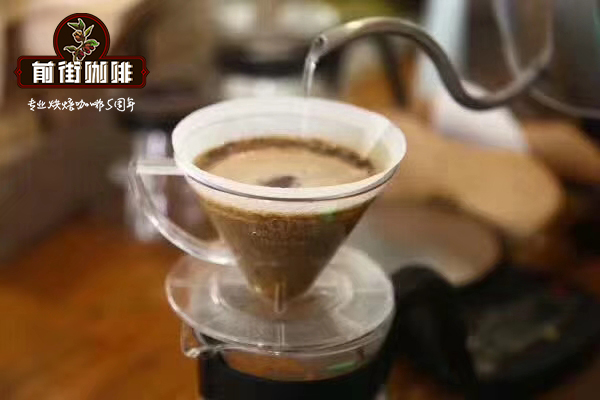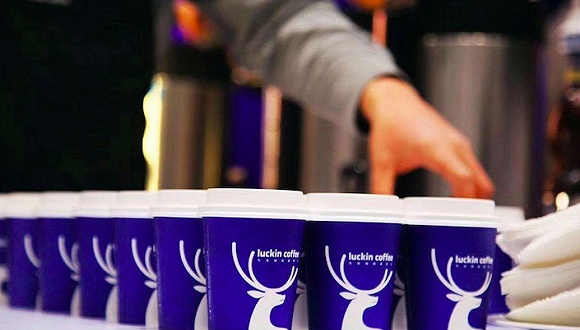Yunnan coffee beans enter Starbucks. Do you think Yunnan coffee is good?

Professional coffee knowledge exchange more coffee bean information please follow the coffee workshop (Wechat official account cafe_style)
Starbucks China recently announced that this year's Starbucks Yunnan coffee beans not only use 100% of the high-quality Arabica coffee beans grown in China, but also complete the baking process in China. Starbucks selected a Shanghai roaster to give this coffee the imprint of "roasting in China".
When it comes to colorful Yunnan, people always think of the warmth and fragrance of tea all the year round. In fact, Yunnan not only has good tea, but also contributes about 95% of China's coffee production. Pu'er City in southwestern Yunnan is an important coffee town in Yunnan. A reporter from the Economic Daily and China Economic Network learned in an interview with Pu'er Coffee Base a few days ago that Starbucks has supported Yunnan coffee planting industry for six years. In order to promote Yunnan's high-quality Arabica coffee beans to the world, the first coffee grower support center in the Asia-Pacific region was established in Pu'er in 2012, working closely with Yunnan coffee growers to provide them with free coffee cultivation, processing and other knowledge training and technical support. Promote the development of Yunnan coffee industry in a sustainable way.
Tong Yalun, director of the Starbucks grower support Center, said in an interview that from sowing seedlings to hanging attractive berries, it takes 4-5 years of careful care from farmers. After the preliminary processing, the hand-picked fruit must pass the strict taste test of the cup reviewer, and it will have a chance to turn into a wisp of mellow fragrance in the mouth of the customer after going through many tests.
Helping farmers standardize their cultivation is Starbucks' strategy to improve the quality of Yunnan coffee beans from the source. To this end, Starbucks introduced coffee and fair norms for growers to Yunnan. The specification requires that farmers must meet the requirements in the four aspects of product quality, economic responsibility, social responsibility and environmental protection, and must be strictly certified by third-party organizations in order to become a supplier of Starbucks.
At first, a series of complex certification conditions and systems deterred many landowners and farmers. Li Bing, a 36-year-old Pu'er farmer, told reporters that when Starbucks first arrived, people said that they had very strict quality requirements. In order to become a coffee supplier of Starbucks, he must pass the standard certification, which means that not only the quality of coffee should be improved, but also the production environment and employment environment should be improved, the environmental protection should be up to the standard, the use of agrochemicals should be strict, and there must be vouchers for every entry and exit payment. "it is not easy to meet these requirements at first, but the results are real after they are achieved. Every time I send coffee beans, I get a reward higher than the market price. " Today, Li Bing has become Starbucks' long-term partner in Pu'er, and the output and quality of coffee in his family's 80 mu field has improved steadily.
Although Starbucks has strict standards for coffee procurement, once selected, these high-quality and precious good coffee and its growers will reap a good price higher than the average market price, which is the "high quality and good price" procurement principle that Starbucks took the lead in promoting. As a result, Pu'er farmers gradually abandoned the "one-pot end" and began to grade coffee beans and select excellent coffee beans. With the promotion of the principle of "high quality and good price", many landowners and farmers have gradually become rich in income.
Ding Zhihai, a farmer who delivered goods from Baoshan, more than 400 kilometers away from Pu'er, was deeply impressed by this. As the first batch of local Starbucks suppliers certified by regulations, he organized villagers from four villages to set up cooperatives to grow coffee beans together. He has another idea about Starbucks' rigor: coffee cup testing is necessary for sampling and roasting, but he is surprised by strict requirements on the appearance of coffee beans-in short, Starbucks Coffee Purchasing six standards cover almost every aspect of good coffee. He shipped 30 tons of coffee beans this time and received an extra reward of 50,000 yuan.
After seeing the real benefits of some of the first certified estates, the curry farmers dispelled their doubts and rushed to the coffee grower center to learn advanced planting techniques and obtain certification. Up to now, the number of coffee farms in Yunnan has reached 1678, with a total planting area of more than 16000 hectares and a total training of nearly 17000 people.
Director Tong Aaron recalled: "just arrived in Yunnan in 2012, Ka Nong did not know us, only 25 Ka Nong attended our first training." For more than five years, Starbucks agronomists have taught a variety of expertise to farmers, which has really benefited tens of thousands of farmers. Ka Nong also gradually regarded us as partners and friends and took the initiative to seek support and cooperation. This is like the growth process of coffee, which takes 4-5 years from sowing to harvest. Today, we have not only harvested high-quality Yunnan coffee, but also our trust with farmers, and a common vision for the future-to comprehensively enhance the image and status of Yunnan coffee on the global coffee stage. "
Collecting good coffee beans is only the first step in making high-quality coffee. The reporter saw in the interview that in order to ensure the quality of coffee beans, professional cup commentators should check the coffee beans before they are put into storage. Mr. Li, a master of Starbucks cups, told reporters that during the coffee harvest season, each cup critic tastes an average of 200 cups of coffee a day, and in peak times, up to 300 cups of coffee a day. Coffee beans that pass the cup test will be shipped to the factory for pre-processing. In this link, Starbucks has adopted advanced "Kanban management" to ensure the stability of products in a more standardized, accurate and professional way.
This year, high-quality Arabica coffee beans from Yunnan have been roasted at Starbucks selection Shanghai Roasters and shipped to local stores, thus making Starbucks' value contribution to China's coffee industry a key step: entering China for the first time to achieve a complete journey from "one raw bean to one cup of coffee" in China.
Related recommendation: Yunnan small coffee beans how to brew Yunnan small coffee brand recommendation
Important Notice :
前街咖啡 FrontStreet Coffee has moved to new addredd:
FrontStreet Coffee Address: 315,Donghua East Road,GuangZhou
Tel:020 38364473
- Prev

Yunnan Coffee Brands introduce the Historical Story and current Development of Yunnan Coffee
Professional coffee knowledge exchange more coffee bean information Please follow the coffee workshop (Wechat official account cafe_style) in 1892, when the French missionary successfully planted the first coffee tree in a place called Zhukula for his own coffee needs, he might not have thought that a hundred years later coffee would become a bright spot in agriculture with Yunnan plateau characteristics. Yunnan in the 1950s
- Next

The rumor has been confirmed! Luckin Coffee completes the round B financing with a valuation of $2.2 billion!
Professional coffee knowledge exchange more coffee bean information please follow the coffee workshop (Wechat official account cafe_style) on December 12 Luckin Coffee (luckin coffee) announced the completion of round B financing of US $200m, with a post-investment valuation of US $2.2 billion. Pleasure Capital, Dawei Capital, GIC (GIC), China International Capital Corporation and others participated in this financing. After completing the financing, the pleasure capital
Related
- What brand of black coffee is the most authentic and delicious? what are the characteristics of the flavor of the authentic Rose Summer Black Coffee?
- Introduction to the principle and characteristics of the correct use of mocha pot A detailed course of mocha pot brewing coffee is described in five steps.
- Which is better, decaf or regular coffee? how is decaf made?
- How much is a bag of four cat coffee?
- How about four Cat Coffee or Nestle Coffee? why is it a cheap scam?
- Which is better, Yunnan four Cats Coffee or Nestle Coffee? How about cat coffee? is it a fake scam? why is it so cheap?
- How about Cat Coffee? what grade is a hoax? which instant coffee tastes better, four Cat Coffee, Nestle Coffee or G7 coffee?
- Process flow chart of coffee making-Starbucks coffee making process what coffee tastes good at Starbucks
- The top ten best coffee beans in the world Rose summer coffee or Tanzanian coffee tastes good
- Yunnan four cat coffee is good to drink?_four cat coffee is a big brand? four cat blue mountain coffee is fake?

